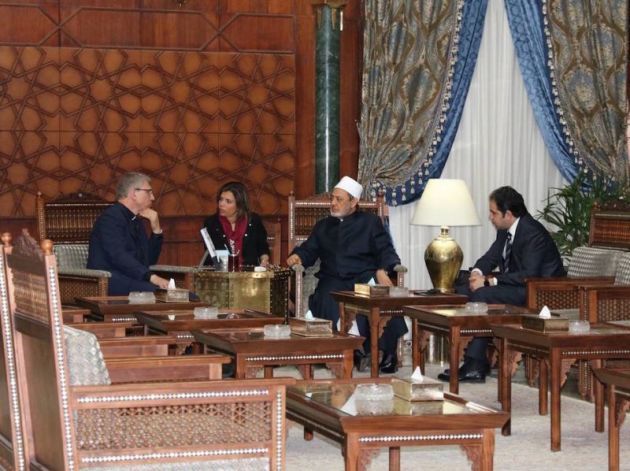Pope Francis hails new United Arab Emirates group to promote Human Fraternity

Pope Francis has expressed his appreciation for a new committee set up in the United Arab Emirates to promote the ideals contained in the Document on Human Fraternity.
Pope Francis and the Grand Imam of Al-Azhar, Ahmed el-Tayyeb, signed the Document on Human Fraternity for World Peace and Living Together in Abu Dhabi in February 2019, Vatican News reports.
That document has led the UAE to set up a high committee to spread the principles of tolerance and cooperation, especially through education.
On Aug. 26, the Pope encouraged the committee's work and thanked the UAE "for the concrete commitment shown on behalf of human fraternity."
He also expressed hope that similar initiatives may spring up in other parts of the world.
"Although sadly evil, hatred, and division often make news, there is a hidden sea of goodness that is growing and leads us to hope in dialogue, reciprocal knowledge and the possibility of building – together with the followers of other religions and all men and women of good will – a world of fraternity and peace," said Francis.
The Director of the Holy See Press Office, Matteo Bruni, announced the Pope Francis' appreciation and remarks in a press statement.
Bishop Miguel Ayuso Guixot, President of the Pontifical Council for Interreligious Dialogue, is a member of the UAE committee.
In an interview with Vatican Radio's Alessando Gisotti, Ayuso said the initiative is "very important" and that it will help educators get to the heart of the Document on Human Fraternity.
"The opportunity to educate ourselves and others in a culture of encounter, fraternity, and peace means finding the will to redesign the academic and educational programs offered by Institutes and universities."
Bishop Ayuso said such a re-examination of schooling in this context "demands that institutions take care to study, reflect, and present the content of the document at all levels."
The high committee, he said, needs to "explore various ways to involve both national and international institutions, as well as religious, academic, and political leaders, all the while seeking to reach young people."
He also thanked Abu Dhabi's Crown Prince, Sheikh Mohamed bin Zayed Al Nayhan, for the committee's creation.
Ayuso defended against criticism from some Catholic quarters that the Document on Human Fraternity is a pathway towards syncretism or relativism.
EQUAL IN DIGNITY
"It is not about creating a 'melting pot' in which all religions are considered equal," he said, "but [recognizing] that all believers, those who seek God, and all people of good will without religious affiliation are equal in dignity."
He noted that the Catholic Church always engages in interreligious dialogue by remembering "the value of her own identity."
"Pluralism in our societies – not only the religious kind – is a reality that invites us to reflect on our identity, without which authentic interreligious dialogue is impossible."
In April 2017, the second meeting of a delegation of the Muslim Council of Elders led by Al-Tayyeb and a delegation of the World Council of Churches took place at Al Azhar, Cairo, Egypt.
Al-Tayyeb opened the gathering by welcoming the World Council of Churches to the meeting which took place at a critical time in the history of the Middle East and the world.
The WCC general secretary, Rev. Olav Fykse Tveit, had reflected that, together, Christians and Muslims represent about half the world's population.
"So as we are here, we are not talking about only ourselves," he said. "We are talking about humanity in many ways. We should address these questions from a basic theological perspective. What does it mean to believe today in one God that created the one humanity?"
Tveit said, "I think this is a very important reflection, working jointly toward equal citizenship. It is not only a political or a legal principle; it is also a principle that expresses our deepest faith in one God creating the one humanity."
For his part, Al Tayyeb said "Citizenship and peaceful co-existence are the greatest challenges that have to be focused on and built upon to counter fanaticism, terrorism and baseless theological claims and conceptualizations.
He added "Citizenship is the major guarantee for achieving absolute equality in rights and duties."